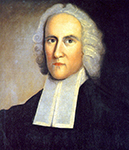Heaven is the dwelling place of God and the seat of His kingdom, high above all the kingdoms of this world (1 Kings 8:30; Isa. 66:1; Matt. 25:34; Acts 14:22; 2 Cor. 12:2). It is the place of His glorious presence forever and the eternal home of believers. Heaven is both privative and positive—the latter, as a place free from all misery; the former, as a place where all divine blessings are savored. Heaven is a paradise (Luke 23:43); an eternal habitation (Luke 16:9; John 14:2; 2 Cor. 5:1); a city to come (Heb. 13:14); a glorious inheritance (Col. 1:12); a place of joy (Ps. 16:11); and, above all, a world of love.
The triune God, the fountain of love (1 John 4:8), renders heaven a world of love. There dwells God the Father, the Father of love, who so loved the world as to give His only begotten Son. There dwells Christ, the Prince of love, who so loved the world that He shed His blood and poured out His soul unto death for men. There dwells the Holy Spirit, the Spirit of divine love, in whom the very essence of God, as it were, flows out and is breathed forth in love, and by whose immediate influence all holy love is shed abroad in the hearts of all the saints. In heaven, this infinite fountain of love—this eternal Three in One—is set open without any obstacle to hinder access to it, as it flows forever in beams as light from the sun.
God’s heavenly love is lavished on lovely objects. Heaven is where love is not confined, for it flows out in innumerable streams toward all the saints and angels of glory. There is no odious, unlovely, or polluted person or thing to be seen (Rev. 21:27). Nothing will offend even the most refined taste or the most delicate eye. The Father of the family is lovely, and so are all His children; the Head of the body is lovely, and so are all the members.
Christ loves all His saints in heaven. His love flows out to His whole church and to every individual member of it. Truly, heaven is not heaven without Christ. He is the very heaven of heaven. Moreover, the saints themselves not only will receive this love of Christ, but will themselves love. They will love God for His own sake and each other for God’s sake. In heaven, there will be no remaining enmity, distaste, coldness, or deadness of heart toward God and Christ. As the saints will love God with an inconceivable ardency of heart and to the utmost of their capacity, so they will know that He has loved them from all eternity, still loves them, and will continue to love them forever.
The saints will love each other. There will be nothing external in heaven to keep its inhabitants at a distance from each other or to hinder their most perfect enjoyment of each other’s love. In heaven, all will be united together in very near and dear relations. They will all be as brethren, for all will be but one society, or rather one family, and all members of the household of God. There will be the infant of days that we have lost below, through grace to be found above; there will be the Christian father, mother, wife, child, and friend, with whom we will renew the holy fellowship of the saints.
What a haven of rest to enter, after having passed through the storms and tempests of this world, in which pride, selfishness, envy, malice, scorn, contempt, contention, and vice are as waves of a restless ocean, always rolling and often dashed about in violence and fury. There “they shall hunger no more, neither thirst any more; neither shall the sun light on them, nor any heat. For the Lamb which is in the midst of the throne shall feed them, and lead them to living fountains of waters, and God shall wipe away all tears from their eyes” (Rev. 7:16–17). May the believer long earnestly for this eternal state of blessedness, where he shall see his Redeemer with his very eyes, and see no other, for Christ will be so all-consuming for him.
Jonathan Edwards (1703–1758), often called America’s greatest theologian and philosopher, was a powerful force behind the First Great Awakening and became a prolific writer. This article is adapted from Jonathan Edwards, “Heaven Is a World of Love,” in Charity and Its Fruits.
Published by The Banner of Sovereign Grace Truth, used with permission.

